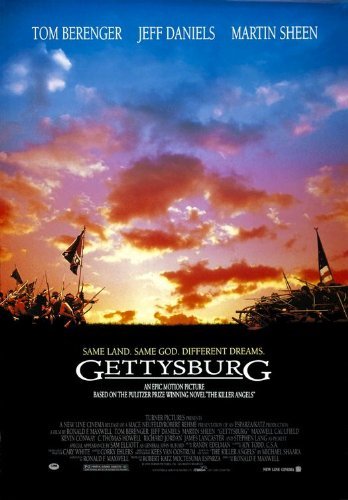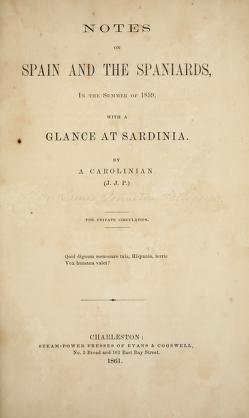J. Johnston Pettigrew, Author

In the blockbuster movie Gettysburg, which hit the big screens in 1993, there is a moment in the film of an exchange between Confederate Generals James Longstreet and J. Johnston Pettigrew on July 3rd. For those reading this that are aficionados of the film (and the book it derived from, The Killer Angels, by the late Michael Shaara) you are very familiar with the scene I am referring to.
For those that are not, the scene has Longstreet in conversation with the three division commanders, Pettigrew, Isaac Trimble, and George Pickett about the plan of operation for the attack on the Federal lines that became known to history as the Pickett-Pettigrew-Trimble Charge.
Longstreet and Pettigrew exchange pleasantries and the former makes mention of a book the latter wrote. The North Carolinian Pettigrew instructs a staff officer to retrieve a copy and with his compliments present it to Longstreet. The South Carolinian Longstreet responds with a quip about a lack of time to read it that day.
Re-watching the movie for the umpteenth time, the thought finally struck me, what book did Pettigrew write?
The answer is, Notes on Spain and the Spaniards in the Summer of 1859, With a Glance at Sardinia. Published in 1861 by the Presses of Evans and Cogswell of Charleston, South Carolina upon his return from a second venture to Europe.

(courtesy of archive.org)
Pettigrew’s first trip included being a student in Berlin and he used the two plus years afforded him on the Continent in the early 1850’s to travel across much of Western Europe. He was particular in his travels, locating places that typically were not part of the normal tourism agenda. He became proficient in at least four languages in addition to learning Hebrew and Arabic as he had begun planning a publication on the Spanish Moors.” The war interrupted the study.
The accomplished musician, mathematician, author, and politician initially went to war as a private in the Hampton Legion but soon accepted the rank of colonel of the 22nd North Carolina. His brigade joined the Army of Northern Virginia in May 1863 and Pettigrew became acting division commander when Henry Heth was wounded on July 1, 1863. During the advance on July 3rd, Pettigrew was wounded in the hand. Eleven days later in a rearguard action along the Potomac River at Falling Waters he was shot in the stomach, mortally wounded, he would expire three days later.
Wonder if Longstreet ever received the book or if he did, read it. Regardless, even eighteen years later one can still go down a rabbit hole of history while watching Gettysburg.
Further Information:
A digital copy of Pettigrew’s book can be found here.
Phil, thank you for this. The nineteenth was the great century of travel monographs, and it’s fascinating to see that this was the book Pettigrew was referring to. What an accomplished individual. How many lives of potential on both sides that were lost.?
my favorite movie. i love watching Buford, Gamble and Devin (Buford’s hard hitter), the iron brigade with their Hardy Hats , the Berdan Sharpshooters in their green uniforms, the irish Brigade at the wall unfurling their emerald green flag in Picketts charge and letting off a volley of musketry, the canoneer pulling the lanyard on one of Cushing’s guns and blowing rebels to kingdom come with double canister. i could go on and on. so historically accurate for a hollywood production.
My understanding is that Pettigrew at Falling Waters, after being wounded was advised by doctors that he might live if they left him behind to continue to heal (and then be captured by the Yanks) but he insisted on being moved and that was the end for him.
Realism in the movie – There is a scene in that movie of a cannonball arcing over trees. They fired a real cannonball to get that shot, (a side note from Punsylvania.)
Another accomplishment of Pettigrew eas his appointment as a professor at the National Observatory by President Polk.
Well done. I remember that scene quite well, but it never occurred to me as to what book he was talking about. Now I know, so thanks for that.